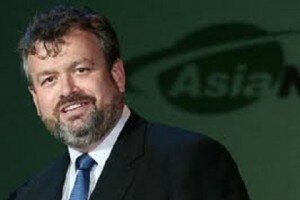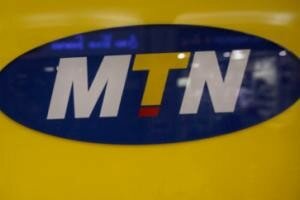
www.cheesekids.org.za
HumanIPO: How did SEACOM overcome the recent cable cuts?
Mark Simpson: Our prime focus has been to restore services for customers. To do this the SEACOM team had to identify, negotiate and sign contracts to establish multiple paths across the Mediterranean on cable systems that were unaffected by the recent cable cuts.
Additionally, once these routing paths were chosen, cross connects at the Egypt and Marseille terminals had to be manually coupled by teams deployed at both sites. Following the subsequent SMW-4 cut we have obtained additional capacity on other trans-Med systems to restore customers.
The SEACOM subsea cable cut in the Mediterranean is being investigated to understand the root cause of the outage. Ships are being sent to the area to bring up the cable and implement repairs. SEACOM will keep its customers up on the restoration path capacity until such time as all repairs to the cable have been completed.
How will SEACOM be looking to prevent such problems in future?
Subsea cables are protected by armour sheaths, burying, notifications to ships of cable location and exclusion zones. We continue to invest in adding new routes and capacity to our network to improve diversity and resilience, especially for those customers utilising our IP Service. Following this event we will conduct a thorough post-mortem and consider what other steps we may take.
Please explain the reasons behind the launch of Pamoja.
Pamoja is a new entrant into the cloud computing market. Pamoja brings a fresh perspective to the delivery of ICT infrastructure and services via the market in Africa. Pamoja will offer through our channel partners the ability for small and medium-sized enterprises to enjoy cloud computing-based services without the capital outlay such services usually require.
The launch was to introduce prospective solution and channel partners to the opportunities that Pamoja can offer them. Pamoja will deliver a cloud services marketplace for SMEs in Africa through a channel of resellers.
How important is cloud computing in Africa?
Pamoja’s cloud offering affords SMEs in Africa access to all the IT services that large enterprises across the globe have access to. This will provide African organisations with the benefits of enterprise computing for less cost and bring them one step closer to competing on an equal footing in the global market.
Why has SEACOM felt the need to treble its capacity?
Upgraded to meet demand and to introduce next generation technology to our network.
Is demand still rising or is there connectivity saturation to an extent now?
Demand is still rising across Africa. We still see exponential growth in demand, as end-users start consuming more online services such as video and storage. Demand saturation is not a concern!
How does SEACOM compare to other cables now in terms of capacity?
Like all new cables in Africa SEACOM has lit a small portion of potential capacity. Our introduction of next generation equipment, supporting 40GB and later 100GB channels, continues to expand our potential capacity.
Is fibre still relevant in Africa?
Fibre is critical as it is the only medium that can serve high capacity demand cost-effectively. Many people refer to how mobile is increasingly serving the African Internet but fibre is crucial for backhauling the capacity from mobile sites to the Internet Gateways and for carriage between base stations. Increasing terrestrial fibre density and reach is essential to enabling continued broadband penetration and growth.
Is fibre more effective than satellite in last mile connectivity?
Satellite has capacity constraints compared to fibre. However, as it is easier and quicker to install, it is sometimes the only option to provide connectivity to remote rural areas. Generally, this connectivity is limited to voice and low bandwidth applications.
Fibre on the other hand has far greater throughput capability and lower latency when compared to satellite, allowing video and other real-time high-bandwidth applications to be delivered easily and more cost effectively. Capacity delivered over satellite is still a lot more expensive on a per Mbps basis.
What does greater connectivity bring to the African continent?
The ability to access the same level of information, at the same speeds and at a similar price as more developed countries means that African countries are now provided with greater opportunities in terms of education, business, health and communication. Greater connectivity levels the global playing field so that business in Kampala can compete with business in New York.





















































